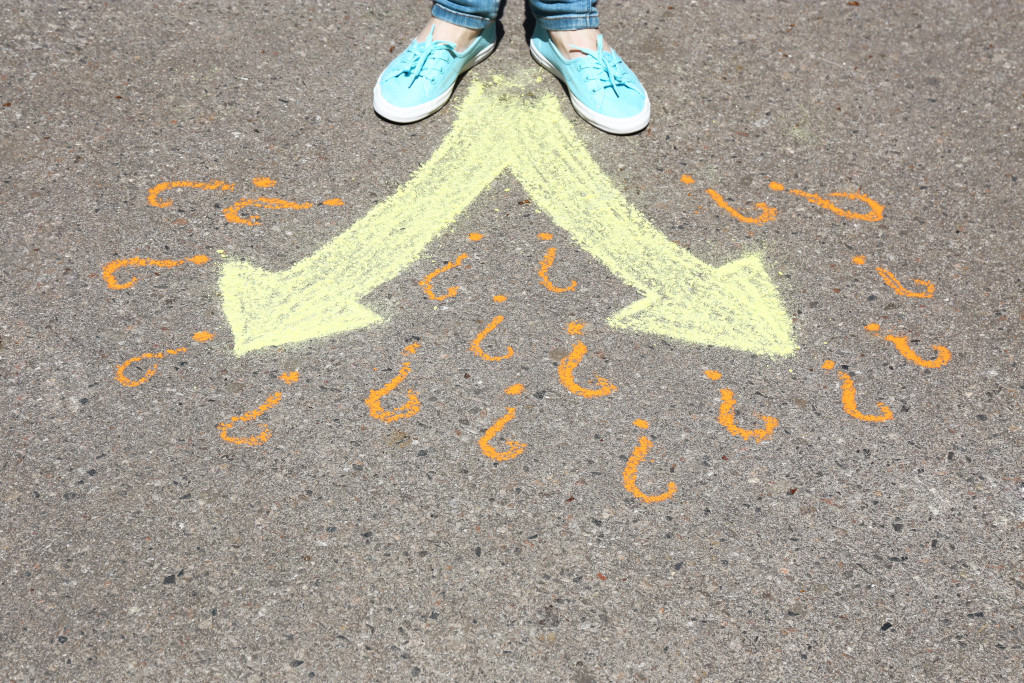Finding Closure – (Saying “Goodbye”)
Ever caught the song 50 Ways to Say Goodbye, by Train? If you’ve never really heard the words, take a quick listen to the lyrics; even divorce professionals can’t help but laugh out loud. In it, a man tells the story of his girlfriend leaving him. He decides that he won’t tell anyone why. Instead, should they ask, he’ll offer different explanations, all absurd, for her absence, with details like she “was eaten by a lion,” “was run over by a crappy purple Scion,” or “fell in cement mixer full of quicksand,” or, my personal favorite, was “fried getting suntanned.”
Is There a Perfect Goodbye?
Regardless of why relationships end, there is no “perfect” way to say goodbye. The divorce process provokes many emotions. These can range from sorrow, guilt, fear, or anger all the way over to shame, relief, or even exhilaration. No matter what, the end of a marriage, and the related goodbyes, are almost always difficult for at least one, if not both partners.
How do we deal with that, both internally and with our partners? Wouldn’t it help the divorce process move more smoothly if both spouses had already said “goodbye” to their marriage and to their partner before starting it? Often, the goodbyes remain unspoken, forever causing pain that cannot be defanged because the moment for the goodbye has passed.
The reality is that many of us are not able or find it too painful to say our goodbyes. Even when attempted, the goodbye is often poorly executed or simply misunderstood. This often contributes to resistance to the divorce, creates emotional hurdles that get in the way of the divorce process, and interferes with our ability to co-parent post divorce.
Why Is Closure Important?
Stressful situations, like divorce, can negatively impact, not only one’s health, but also one’s ability to make well-reasoned decisions. But the dissolution of a marriage requires one to make critical decisions, regarding both one’s children and one’s future financial well-being. So reducing the stress of divorce would certainly contribute to easing the process.
Anytime we pass through a door, should we not assess what we leave behind? Some things from the past should certainly remain there, but should we not choose to bring other aspects with us into our next phase? When we close a door, it’s helpful to navigate the process proactively to provide a sense of closure and to make peace with what stays behind.
So how does one find closure after divorce?

Finding Closure
In part, this is accomplished by working through the emotional issues having to do with closure first. It is crucial to your mental health and psychological wellbeing to actually “say goodbye,” i.e., to achieve closure in a divorce, and to address the emotional issues early in the process. This ensures that your legal and financial issues will be easier to resolve.
Humans crave answers that aren’t confusing or ambiguous. We want puzzles to be completed and mysteries to be solved. This is human nature. Cognitively, we each seek a conclusion to our story, with a past, present, and future. When embarking on closure, we can restructure our story, perhaps seeing it in a healthier way, understanding what went wrong in the past and modifying our story accordingly going forward. When we are denied closure, our attempts to understand what happened can leave unanswered questions and doubts about our own abilities to engage in meaningful relationships.
Different people require different amounts or forms of closure, depending on their own unique personalities and the way they felt in their relationships. Not everyone, for example, grieves at the same pace. If divorcing, be compassionate that your ex may be on a different timeline from you or need more closure than you do. You may be further along your path to closure than she is. Sometimes, just allowing a bit more time for the parties to heal can make your actual divorce process more successful.
Although the divorce process can be truly uncomfortable, it’s best not to rush it.
Be Proactive
Do you grieve the loss? Let’s face it, divorce is a lot like a death, and, I would argue, in many ways, it’s worse. Not only is it the death of the marriage, but sometimes the person with whom one of you thought to be partnered for life is now with someone else, someone you might even run into at your local Whole Foods. So it only makes sense to work through the stages of grief we’ve come to associate with the death of a loved one to come to terms with the fact that life will never be the same after your divorce either.
Do you perform a ritual? Human beings tend to attach a ceremony or ritual to most major life milestones to celebrate them, to grieve them, or simply to make them known and to memorialize them. When people marry, we commemorate the event with a wedding ceremony. When people die, we hold a funeral or a celebration of life. But what’s the appropriate ritual for when one divorces?
Perhaps the better question is “What is the appropriate ritual for you?”
Do you say “Goodbye”? In the case of a divorce, you now have an ex-spouse. Do you also have ex-in-laws and maybe even ex-friends from his/her side of your family whom you envision as no longer part of your future? Have you given them the opportunity to opt out or did it just happen because you “got divorced”?
The divorce “goodbye” may not be as sentimental and sweet as the type you gave your parents when you first moved out of your childhood home, or the one your best friend offers you when she moves out-of-state. Often, in my experience, an actual farewell is not spoken when it should be. In these situations, actions speak louder than words, and it’s just understood that you’ll have nothing to do with one another anymore.
But is that really the best way to manage all of the emotions wrought by the declaration of divorce? Especially when the legal and financial entanglements remain still to be untangled?
When we co-parent after divorce, our ex, and to an extent, his or her family, will still be a part of our lives and certainly those our children. Closure in these circumstances means finding a way to accept the feelings and connections of the past relationship and to transition into a future that embraces new feelings and new relationships.

What’s My Best Chance for Closure in My Divorce?
In a collaborative divorce, your professional team focuses you and your ex on not only the financial and custodial aspects of your divorce, but also the healing of the participants. In this holistic approach, a mental health professional acts as a facilitator or coach, guiding the team through the emotions that come with divorce. Spouses are encouraged to talk to each other during their full team meetings, not only to make important decisions, but also to answer questions and understand the deep-seated issues that lead to the divorce.
It is not unusual to witness “magic” during these meetings. Participants make confessions or address feelings that would otherwise go unshared. This is often the closure that the other craves. It leads to a quicker and better resolution.
If you are getting divorced, first learn about your process options. You’ll discover that there is a better way than a courtroom divorce. For information regarding all of the courtless options, see us at www.OpenPalmLaw.com or email me at Joryn@OpenPalmLaw.com.
Learn more about collaborative divorce. Follow Open Palm Law.
Need advice now? Contact Joryn!

About this week’s author, Joryn Jenkins.
Joryn, attorney and Open Palm Founder, began her own firm here in Tampa after a 14-year career in law, two of which she served as a professor of law at Stetson University. She is a recipient of the prestigious A. Sherman Christensen Award, an honor bestowed in the United States Supreme Court upon those who have provided exceptional leadership in the American Inns of Court Movement. For more information on Joryn’s professional experience, take a look at her resume.













